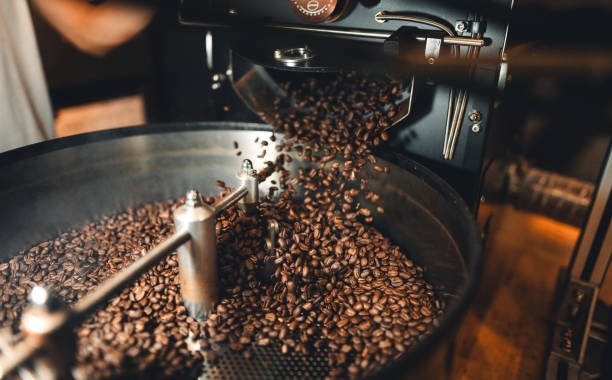Coffee is one of the most popular beverages in the world, enjoyed by millions of people every day. From artisanal cafes to big chain coffee shops, the aroma and taste of freshly brewed coffee are irresistible to many. However, you may have noticed that whole coffee beans are generally more expensive than pre-ground coffee. In this article, we will explore the reasons behind why coffee beans are more expensive than ground coffee.
1. Quality of Ingredients:
One of the main reasons why coffee beans are more expensive than ground coffee is the quality of the ingredients. Coffee beans are the raw form of coffee before it has been processed and ground. They come in different varieties, such as Arabica and Robusta, each with its own unique flavor profile. Coffee producers take great care in sourcing high-quality coffee beans, which can be more expensive due to factors such as growing conditions, harvesting practices, and the region where they are grown.
On the other hand, ground coffee is made from coffee beans that have been processed and ground into a fine powder. While ground coffee can still be of high quality, it is generally made from a blend of different beans to achieve a consistent flavor profile. This can result in a lower cost compared to single-origin coffee beans.

2. Processing Costs:
Another reason why coffee beans are more expensive than ground coffee is the processing costs involved. Coffee beans go through a complex process before they are ready to be brewed. This includes harvesting, drying, roasting, and packaging. Each step in the process requires labor, equipment, and specialized knowledge, which can increase the cost of coffee beans.
In contrast, ground coffee is already processed and ready to be brewed, so there are fewer steps involved in its production. This can lead to lower processing costs and, ultimately, a lower price for consumers.
3. Shelf Life:
Coffee beans have a longer shelf life compared to ground coffee. When coffee beans are stored in an airtight container in a cool, dark place, they can last for several months or even years without losing their flavor. This longer shelf life is due to the protective outer layer of the coffee bean, which helps preserve the oils and flavors inside.
On the other hand, ground coffee has a shorter shelf life because it has been exposed to air and light, which can cause the oils and flavors to deteriorate over time. To ensure freshness, ground coffee should be consumed within a few weeks of being opened. As a result, coffee producers may need to sell ground coffee at a lower price to make sure it is consumed before it goes stale.
4. Packaging and Marketing:
The packaging and marketing of coffee beans also play a role in their higher price compared to ground coffee. Coffee beans are often packaged in premium bags with resealable zippers to preserve freshness. The packaging may also include information about the origin of the beans, the flavor profile, and brewing suggestions, which can add to the perceived value of the product.
Ground coffee, on the other hand, is often sold in more basic packaging, such as paper bags or plastic containers. The marketing of ground coffee may focus more on convenience and affordability rather than on the quality and origin of the beans. This can result in a lower price for consumers.
Conclusion:
In conclusion, there are several reasons why coffee beans are more expensive than ground coffee. The quality of the ingredients, processing costs, shelf life, and packaging all contribute to the higher price of coffee beans. While ground coffee may be more convenient and affordable, coffee beans offer a higher level of quality, freshness, and customization for coffee enthusiasts. Ultimately, the choice between coffee beans and ground coffee comes down to personal preference and budget.
Faqs
Q: Does the quality of coffee beans affect their price?
A: Yes, the quality of coffee beans directly impacts their price. Higher quality beans, such as Arabica beans, are generally more expensive than lower quality Robusta beans.
Q: Are coffee beans more expensive because they are fresher?
A: While freshness can affect the price of coffee beans, it is not the sole factor. The processing and quality of the beans also play a significant role in determining their price.
Q: Can I save money by buying coffee beans and grinding them myself?
A: In some cases, buying whole coffee beans and grinding them yourself can be more cost-effective than buying pre-ground coffee. Additionally, freshly ground coffee often tastes better than pre-ground coffee.
Q: Are there other factors that contribute to the higher price of coffee beans?
A: Yes, factors such as production costs, labor costs, and market demand all play a role in determining the price of coffee beans. Additionally, the region and altitude at which the beans are grown can also impact their price.






